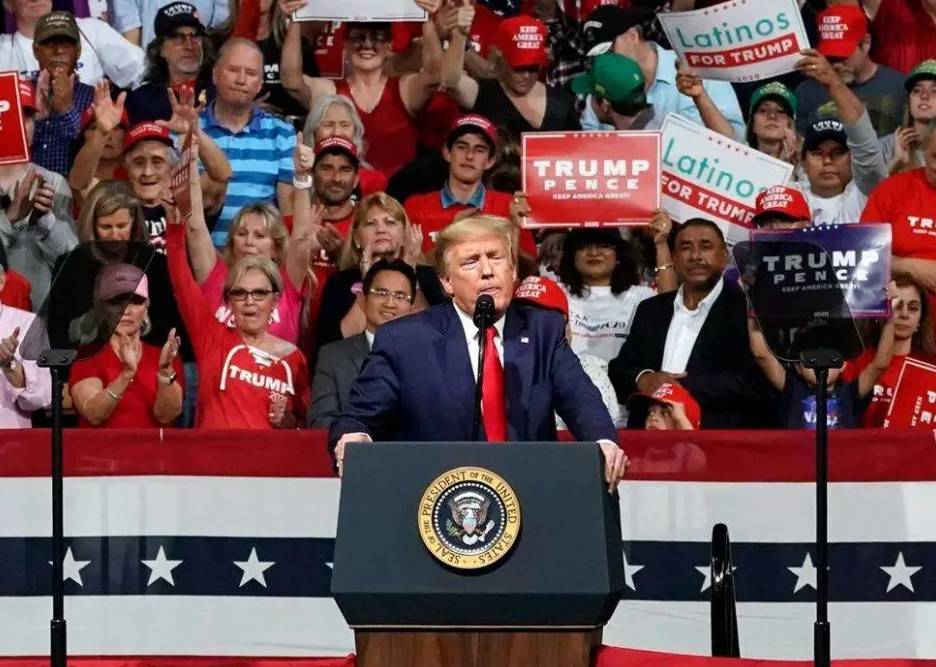
In the current era when global economic interdependence is deepening day by day, the policy direction of a country's leader often has a profound impact on the world economic order. Trump, a highly controversial political figure, his possible re-election might trigger a series of chain reactions in the global economy.
Trump has always had his unique stances on economic policies. In the trade field, his re-election might lead to a further rise of trade protectionism. During his previous tenure, he frequently wielded the big stick of trade sanctions, causing huge shocks to the global industrial chain. If he were to be in office again, this situation might get even worse. For example, trade frictions between the United States and its major trading partners like China might intensify, with high tariffs being reimposed. This would disrupt the normal layout of the global industrial chain, forcing many multinational enterprises that rely on the huge markets of both China and the United States to re-plan their production and supply systems. Some enterprises that originally had factories in China to supply goods to the American market might face more difficult choices. They would either have to bear the high tariff costs or relocate their production bases, but during the relocation process, they would face new costs and risks, including issues related to the labor quality and infrastructure support in the new regions. For some Southeast Asian countries, although they might benefit from some industrial transfers in the short term, in the long run, if global trade remains tense, their export markets will also be affected by American protectionism, and both the scale and efficiency of global trade will decline significantly.
In terms of currency and finance, Trump might once again interfere with the independence of the Federal Reserve and demand the implementation of a more accommodative monetary policy to stimulate the U.S. economy. This approach would impact the international status of the dollar. On the one hand, a large increase in the issuance of dollars would lead to the depreciation of the dollar, putting countries and investors holding dollar assets at risk of asset shrinkage. The dollar debt burden of emerging market countries would increase because they would need to exchange more of their domestic currencies for dollars to repay debts, which might trigger currency and debt crises in emerging markets. On the other hand, the international financial market would be thrown into turmoil. As the dollar is the major international reserve currency and settlement currency, its value fluctuations would cause significant fluctuations in the prices of global commodities. For example, for commodities priced in dollars like oil, the instability of prices would affect the energy market and related industrial chains, from extraction to transportation and then to end consumption, the entire chain would be affected.
Trump has always been skeptical and resistant to international economic cooperation organizations. If re-elected, he might further weaken the United States' willingness to cooperate in international organizations such as the International Monetary Fund and the World Bank, and might even reduce financial support or withdraw from some organizations. Such actions would undermine the international economic coordination mechanism, posing huge challenges to global economic governance. Multilateral trade agreements would also be severely affected. For example, the United United States might continue to oppose agreements like the Trans-Pacific Partnership Agreement (TPP), which would impede the process of regional economic integration. In the face of common global economic problems such as the impact of climate change on the economy and the impact of public health events on economic recovery, without the active participation of the United States in international economic cooperation, it would be difficult to reach effective global coping solutions, and each country would have to act on its own, making the coordinated development and orderly recovery of the global economy a distant dream.
Trump's economic policies usually prioritize domestic interests. If he is re-elected, he might intensify domestic economic stimulus plans such as infrastructure construction. However, this debt-driven domestic economic stimulation might trigger domestic inflation. And the spillover effects of U.S. domestic inflation would affect the global economy. The United States might further raise interest rates to suppress inflation, which would lead to the return of global capital to the United States, leaving other countries, especially developing countries, facing capital shortages, affecting their economic development and construction projects. Meanwhile, if the U.S. economic stimulus plans focus on traditional industries such as the energy industry, it might change the supply-demand relationship and prices in the global energy market. For those countries that rely on energy imports or exports, their economic structures and development strategies would need to be readjusted, and the global economic order would fall into deeper chaos and readjustment under such chain reactions.
The uncertainties brought about by Trump's possible re-election hang over the world economy like a dark cloud. All countries need to pay close attention and actively seek coping strategies to minimize possible economic shocks and losses and maintain the stable development of their own economies. In this complex and changeable international economic environment, the reshaping and stabilization of the global economic order require the joint efforts of all countries, rather than the wanton destruction by unilateralism.

報告顯示,中國電力投資加速增長,預計2024年電網基建投資將超過5300億元。
近日,市場迎來了一則引人注目的消息:工業巨頭3M公司(MMM.N)在本周五公布了其季度業績報告,隨後股價飆升至近兩年來的
最近,外媒給OpenAI算了筆賬,今年可能要血虧50億美元。
近日,巴黎奧運會和世界鐵人三項協會聯合發布了一項重大決定,宣布因塞納河水質污染問題,原定於近期進行的奧運會鐵人三項首次下
當地時間7月18日,法國巴黎發生了一起令人震驚的持刀襲警事件。
近期,一則重大消息在國際舞臺上引起軒然大波,馬來西亞宣布加入金磚國家。
調查發現,互聯網和智能手機的使用幹擾了韓國近五分之一學生的生活。